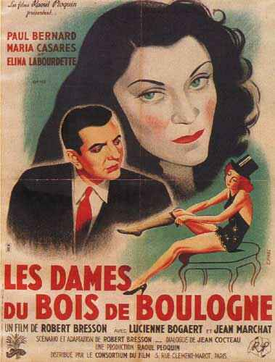 |
| Antoine Monnier in The Devil, Probably |
Cast: Antoine Monnier, Tina Irrisari, Henri de Maublanc, Laetitia Carcano, Nicolas Deguy, Régis Hanrion, Geoffroy Gaussen, Roger Honorat. Screenplay: Robert Bresson. Cinematography: Pasqualino De Santis. Production design: Eric Simon. Film editing: Germaine Artus. Music: Philippe Sarde.
I admire Robert Bresson's films. How can one not? But his next-to-last, The Devil, Probably, tried my patience. The unrelieved inexpressiveness of his characters becomes monotonous to the verge of seeming like a parody of a film about people suffering from existential depression. We are shown the causes of their malaise in footage of environmental devastation ranging from images of the victims of mercury poisoning in Minimata, Japan, to the clubbing of baby seals, to tests of nuclear bombs. But we have all seen and reacted to those images ourselves, and somehow manage not to walk around without at least the occasional smile or laugh. Does Bresson mean to suggest that we are somehow at fault in not becoming suicidal, like his protagonist, Charles (Antoine Monnier)? The film is an implied response to the familiar statement by Camus: "There is only one really serious philosophical problem, and that is suicide." Charles can find no reason to continue living in a world that disgusts him. Intellectually, the film is a work of real brilliance, but it fails to communicate its ideas in a way that engages me dramatically and emotionally. We suspect from the beginning, when we see newspaper headlines about a young man who is first thought to have committed suicide but later to have been murdered, that they're about one of the characters in the film, and we soon realize that it's Charles. So the only dramatic tension in the film centers on the specific way in which this foreknowledge will manifest itself. And so I'm torn. The Devil, Probably is a work I can admire on an intellectual level, but despite some remarkable sections, like Charles's visit to a psychoanalyst, or a scene on a bus that not only tantalizes by what happens in it but also provides the title of the film, it seems to me to fall short as a work of cinematic art. That said, just thinking about it makes me eager to see it again.








